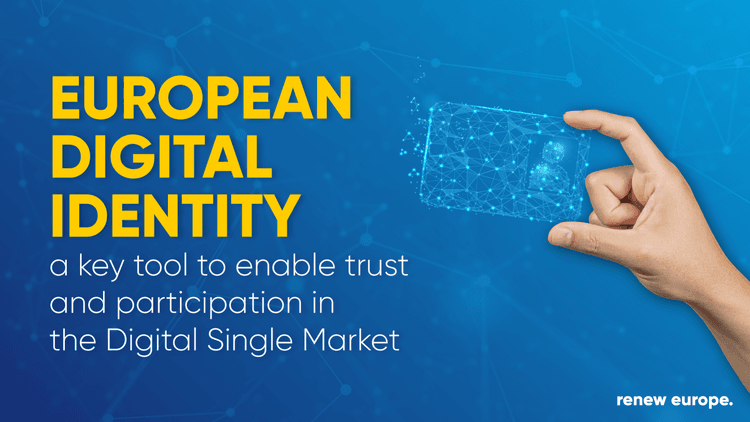European Digital Identity: a key tool to enable trust and participation in the Digital Single Market
Author: Linda Aziz-Rohlje
Date:

Renew Europe welcomes today’s committee endorsement of improved rules helping Member States to design a European Digital Identity Wallet for citizens, businesses and residents that will allow users to benefit from a wide range of public and private services. The Wallets will be linked to national identities and allow storage and use of a multitude of personal attributes in diverse contexts, such as medical prescriptions that can be used across the EU, filling in tax returns, opening a bank account or requesting a birth certificate.
During the preceding inter-institutional negotiations on the new framework it has been imperative for Renew Europe to ensure that the European Digital Identity Wallets work across the EU, are secure, privacy-enhancing and user friendly.
Renew Europe managed to strengthen users of the content of the Wallet, with a privacy management dashboard and diversify the functionalities offered by the Wallet, including a free qualified electronic signature for non-professional use. The underpinning principle advocated throughout the negotiations has been to ensure that the use of the Wallets remains voluntary and is provided to those who wish, free of charge.
The outcome of the inter-institutional negotiations introduces a new obligation for browsers to recognise Qualified Website Authentication certificates (QWACS), only to the extent to which it will display the identity of the web-site owner. Renew Europe secured more transparency on the web, allowing everyone who is surfing online to know who is behind a website while preserving the right of the browsers to ensure safe browsing, without disrupting the existing Internet governance model.
Alin Mituta (REPER/Romania) represented Renew Europe in the negotiations. He says:
“The creation of the European Digital Identity Wallets is a key step to empower our citizens and our businesses to have an app in which they have full and exclusive control over their documents, identification means and other elements that are used in everyday life. A Wallet would mean no more time for our citizens spent in queues to access public services and a speed up and diversification of remote and more efficient services offered by public authorities and European companies. I am confident that we managed to design a good framework that is underpinned on these five principles: security, privacy, interoperability, usability and availability. The work however is not done yet, the success of the Wallets is further dependent on the implementation phase.”
The vote on the improved rules for the European Digital Identity Framework took place in the committee on Industry, Research and Energy.